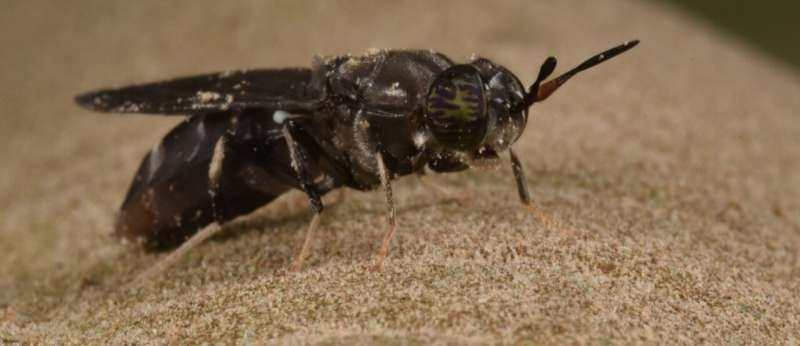A groundbreaking study from the Hebrew University of Jerusalem is poised to redefine sustainable farming and animal nutrition, unveiling the transformative potential of an unexpected resource: insect oil.
Led by Professor Bertha (Betty) Schwartz, a dedicated team of researchers from the Robert H. Smith Faculty of Agriculture, Food and Environment has made significant strides in understanding the powerful anti-inflammatory and immune-modulating properties inherent in oil derived from black soldier fly larvae (BSFL), a novel waste-to-resource superfood already gaining traction in animal feed and fertilizer industries, bolstering principles of sustainable agriculture.
Their compelling findings reveal that a specially treated form of BSFL oil, aptly named MBSFL, possesses the unique capability to significantly reduce key inflammatory signals within immune cells, crucially without impairing beneficial immune functions essential for overall animal health. This breakthrough suggests a future where natural, sustainable interventions could manage inflammation-related conditions in livestock and potentially humans, showcasing the power of this anti-inflammatory compound.
Professor Schwartz highlights the ongoing quest to diminish dependence on synthetic additives within the agricultural sector. She emphasizes the dual benefit of black soldier fly larvae oil, noting its derivation from a sustainable byproduct while simultaneously offering a genuine pathway to bolstering animal immune health through inherently natural mechanisms, aligning with concepts of a circular economy.
Employing sophisticated methodologies including advanced cell culture models and detailed phosphoproteomic analysis, the research meticulously demonstrated MBSFL’s efficacy in dampening overactive immune responses. The oil achieves this remarkable effect by precisely blocking detrimental inflammatory signaling pathways, particularly the infamous NF-κB pathway, concurrently promoting vital metabolic regulators like PPARδ, which are intrinsically linked to balanced, anti-inflammatory physiological states, a testament to modern biotechnology.
The profound biological effects of this novel insect protein oil are intrinsically linked to its distinctive fatty acid profile and its naturally occurring bioactive compounds. These include lauric acid, isoprenoids, and oxylipins, all of which are already recognized for their potent anti-inflammatory and antimicrobial properties, underscoring the natural efficacy of the insect-derived solution for superior animal nutrition.
From a practical standpoint, the research strongly indicates the significant potential for BSFL oil to be developed into a highly effective natural feed additive, offering profound functional health benefits for a range of livestock, particularly within the crucial poultry and swine production sectors. This advancement could pave the way for reduced reliance on conventional medical interventions in animal care.
Crucially, this research champions a robust circular economy model, demonstrating how black soldier fly larvae can be effectively reared on organic waste. This innovative approach not only transforms discarded food scraps and agricultural byproducts into high-value animal health solutions but also mitigates environmental impact by reducing waste streams and promoting sustainable resource management, aligning with principles of sustainable agriculture.
While the initial study concentrated on in vitro models, Professor Schwartz affirms that these foundational findings establish a robust framework for forthcoming trials in live animals, thus unlocking new avenues for the development of functional feeds within the realm of sustainable agriculture. This significant step forward eloquently aligns advanced animal health solutions with critical environmental stewardship, further proving that nature continues to offer profound lessons for scientific discovery through innovative biotechnology.






Leave a Reply